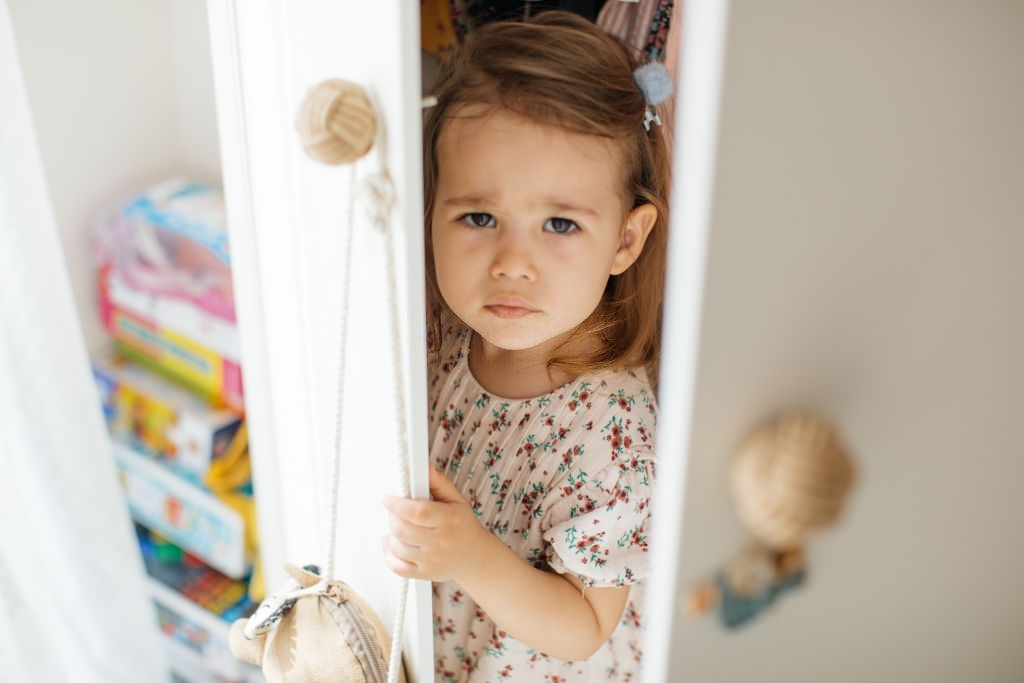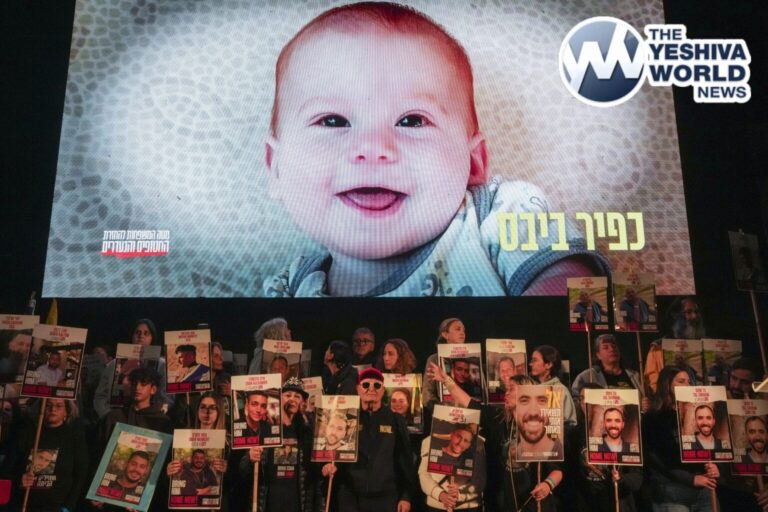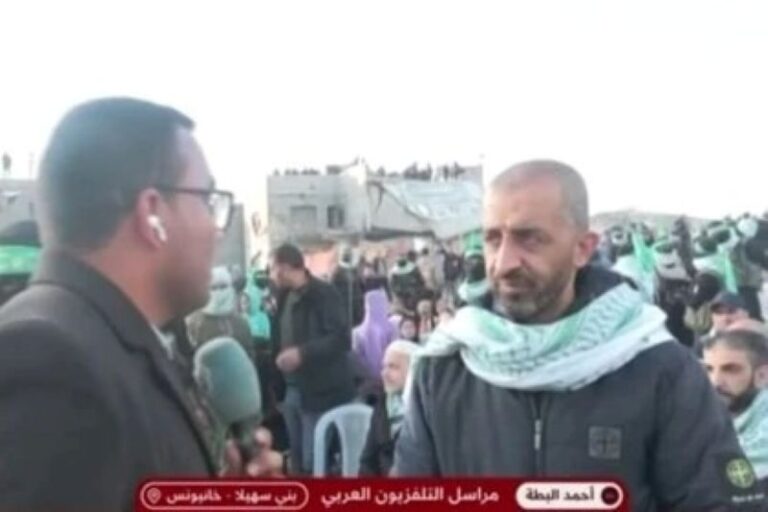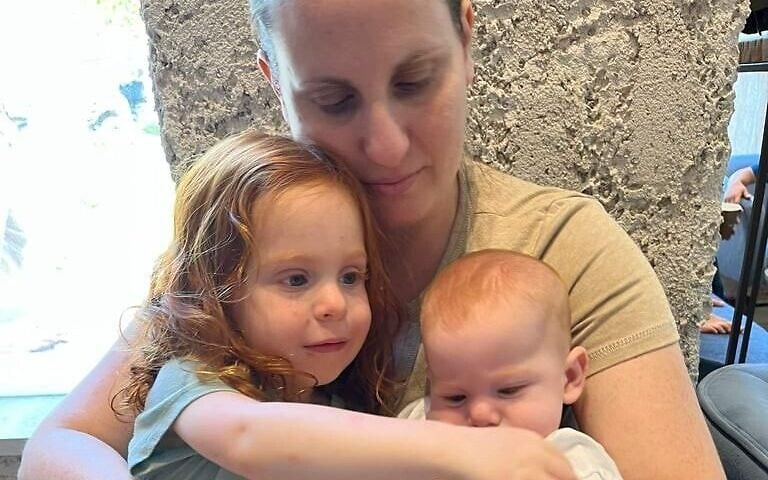By Rabbi Yair Hoffman for the Five Towns Jewish Times
THE CASE
The young girl must certainly have been pretty devastated.
“Stacey” had misbehaved in class. Nothing excessive, but enough to get the teacher a bit upset. The teacher thundered at the fifth grader, “Now I know why they call you ‘Chaya’ – because you are a vildachaya – a wild animal!”
From that point on, the young girl decided to stop using her Hebrew name. Well into adulthood she went by her English name “Stacey.” Indeed, she kept the English moniker as she developed into a master teacher herself with a sterling reputation.
So what is the halachic question?
DOES AN APOLOGY TO A CHILD COUNT?
What would the halacha have been if that teacher had apologized to the young lady? At the time of the incident, “Stacey” was in the fifth grade – a ten year old child. Does an apology made to a minor count? Or is there a requirement to wait until the student’s Bar or Bas Mitzvah?
FINANCIAL ISSUES
In regard to financial issues, the Shulchan Aruch (Choshain Mishpat 235:3) clearly indicates that a minor child’s forgiveness is ineffective. This is based upon the Gemorah in Bava Metziah (22b). If the minor’s forgiveness is ineffective for financial issues, it stands to reason that it would likewise be ineffective for matters of an emotional nature, or for Mitzvos that are bain adam l’chaveiro. Therefore, the teacher’s apology would have to be repeated at the age of the child’s Bas Mitzvah.
VIEW OF RAV LORBERBAUM
Rav Yaakov Lorberbaum zt”l (1760-1832), in his Nesivos HaMishpat (235:1 in the biurim section in the back), indicates that forgiveness by a minor on monetary matters is, in fact, effective. However, it very well could be that an exception was made in the halachos of this case in order to do business with them. Thus, it would perhaps not apply to cases of emotional harm, even according to the Nesivos. If this supposition were correct, the conclusion would again be that the teacher would need to apologize once again when the child reaches adulthood.
RAV SHMUEL KAMENETSKY SHLITA
In the Yomim Noraim edition of Kovetz Hilchos Piskei Rav Shmuel Kamenetsky, by Reb Doniel Asher Kleinman, Rav Shmuel’s view is cited that the child’s mechila does not count. However, Rav Shmuel states that there are two reasons why the teacher must ask again. The first reason is for the person’s own atonement. When one needs to ask someone’s forgiveness the request involves a form of personal embarrassment which achieves a form of atonement. The second reason is so that the child have a form of closure and that there be an atmosphere of peace between them. Nonetheless, the teacher must ask mechila when the child becomes a bar or bas Mitzvah.
RAV ELYASHIV’S VIEW
Similarly, Rav Elyashiv zt”l is cited in Ashrei HaIsh Vol. III (20:4) that the forgiveness of the child is ineffective. Nonetheless, he states that the person should ask forgiveness at the time (on account of the custom to do so), and later ask again when the child reaches the age of majority.
A well known story is told about Rav Elyashiv’s mechutan, the Steipler Gaon. Apparently, the Steipler had inadvertently embarrassed a child in the Lederman Shul in Bnei Brak. On the occasion of the child’s Bar Mitzvah, the Steipler attended and asked mechila of the young man.
RAV NISSIM KARELITZ’S VIEW
In contrast to the views cited above, Rav Nissim Karelitz (Nephew of the Chazon Ish born 1926) zt”l writes in his Chut Shaini (Mili DeNezikin and Yom Kippur p.101) that if a minor child grants forgiveness it is considered effective. [This is also one of the opinions cited in Tosfos Kesuvos (107a).] Rav Kareliz further writes that the mechila serves to remove the hakpada from the heart of the child and that it is also an appropriate penance – a “teshuvas haMishkal” for what the perpetrator had done.
As an interesting aside, Rav Karelitz’s own daughter, Rebbitzen Rosenberg a”h, once came home in tears after someone had insulted her to the point of crying. Rav Karelitz empathized with her greatly, and took a siddur and asked her to sit next to him. He opened up to the Tefilah of Elokai Netzor at the end of Shmoneh Esreh and explained to his daughter the phrase, “venafshi k’afar lekol tihiyeh- and my soul should be as dust to anyone.” He explained that we make this request of Hashem that nothing that anyone says to us should upset us. His daughter aleha hashalom explained that she kept that explanation dear to her heart forever afterward and it assisted her in never getting upset by anyone’s words.
CONCLUSION OF THE STORY
So what was the final conclusion of the story of our young lady? Apparently, one of her colleagues had heard the reason of her fellow teacher’s animadversion toward using her Hebrew name. The colleague, herself a wonderful and dynamic teacher, explained to ‘Stacey’:
“On the contrary, your name shows that you are filled with vigor and life, you are animated and dynamic! It is a very beautiful and fitting name! You should certainly use it!”
Since the encounter with the second teacher – it seems that “Stacey” now goes once again by the name, “Chaya.”
What lesson can we learn from all this? One lesson is that we should be ever careful never to embarrass anyone. Shaming a child can have long-lasting effects. It can also severely damage the relationship between a child and a parent or teacher. The devastating effects of our actions can have repercussions that last decades.
A second lesson, however, is that it is never too late. A positive statement and observation – even decades after a scarring event – can be remarkably healing. The power of words, both negative and positive, are truly remarkable.
The author can be reached at [email protected]












15 Responses
There’s a famous story about a godol (I forget which) who once embarrassed a child in shul. A few years later he showed up unannounced uninvited to the boy’s Bar Mitzvah. Everyone wondered what the godol hador was doing at a simple boy’s bar mitzvah. He explained he came to ask mechila for the incident years earlier.
That was referenced by the author………..
Whoops, missed it. Thanks. That’s what happens when you speed read…
You think it doesn’t happen today? A young girl I know was called a goy by a teacher (& then by the other girls in the class) a few weeks ago for standing & reciting Tehillim on Yom HaShoah. Beat that.
computerbubby #4: If she was properly disciplined for recognizing a zionist holiday (yes, that’s what that that day is – what she did was a form of recognition even if using a Tanach for her purpose ) in a school that recognizes zionism and all its artificially created holidays as pagan, then that has nothing to do with this. A child may, and indeed must, be disciplined.
What about the Yeshiva/School administrator who publicly throws a child out of in front of the whole class because his/her parents are behind on tuition payments?
Probably every adult can list teachers ,relatives,etc., who embarrassed them when they were children..
So what is to be done?
Make a societal overthrow?
#5 – Yom Hashoah is not a Zionist holiday. It may have been established by the State of Israel, but its commemoration has nothing to do with Zionism. It is just a chosen day to remember the Holocaust – which did not check on anyone’s political leanings before conducting murders. If the Satmar factions that are anti-Zionist wish to set such a day of memory, they may do so. The child was not being disrespectful to anyone, and discipline for this is not a true part of chinuch.
#6 – This is commonplace, and it is a total disgrace. One would be just to recognize the need for funds, and the effects of such deficit on the school administration and faculty. But the child is not responsible, and punishing the child, or making them stay home from school is extortion. How sad, that the very people who we entrust to educate our children on morality and Torah values behave in such an opposite manner. Gedolei Yisroel have already addressed this subject, and there is a psak halacha that doing so is ossur.
#7 – Perhaps every one of us can recall an instance when we were embarrassed by a parent, teacher, rebbe, etc. Most of us were resilient enough to handle the situation, and we recovered without scarring. That does not make the behavior acceptable, nor does the child who suffers trauma from shaming bear responsibility for the damage. Shaming someone else is akin to murder. The Gemora tells us about “Malbin pnei chaveiro”, shaming someone else,results in complete loss of one’s Olam Habah. The Gemora explains that it is a form of retzicha, murder. This eliminates the boundary one might suggest that would distinguish between an adult victim or a minor. Murder is murder. The Rambam specifically states that malbin pnei chaveiro is relevant to a child victim just like an adult. The fact that some (even many) recover without lasting damage, in no way lessens the gravity of the aveiroh. If the same teacher ate pork, one might question whether it is proper to keep him/her in a teaching position. How is public shaming less of an aveiroh?
“The little I know”:
“#5 – Yom Hashoah is not a Zionist holiday. It may have been established by the State of Israel, but its commemoration has nothing to do with Zionism. It is just a chosen day to remember the Holocaust…”
You seem to know much too little about this. That day’s complete name ends in “viHaGevura”. That’s an odd name to add to “Holocaust day” if all you want to do is commemorate the genocidal murder of our people in the Holocaust – for which we Jews already have 9 Av.
But, of course, the real point of that day is, of course, Zionism. That’s when the Zionists (specifically) engage in glorifying kochi viOtzem yadi and rebellion against goyim in general, and engage in mass delusion that had there been a State of Israel then none of this would have happened. Of course, their idol doesn’t tell them that about what the Zionists did and did not do during the Holocaust.
There’s much more that could be said on the topic, and gedolim like Rav Miller, Rav Hutner and others have done so; ayein sham.
Honestly, if I hear a teacher calling my daughter wild animal, I tell her that was just my daughter, now say hi to the wild animal mommy. Lawsuit against the school and btw Chaya means life! Bad teacher, lacking training and indeed you don’t know the extend of the damages she may have caused. She must get fired, apologize and find another job.
Sadly, I’ve seen so many issues about the mora that they forget to pay and then children are mistreated. The issue come from the ones who manage the school, themselves having no management training.
I think I once saw a story about the holy Satmar Rav, ztl, who was once at a tisch deep in conversation with someone when a child tried to get the Rebbe’s attention and the Rebbe was so involved with that other person that he didn’t answer the child. That night the Rebbe couldn’t get to sleep and, after examining all his actions during the day, realized that it must have been because of the incident with the child, and couldn’t rest until he had found the child and apologized to him. The Satmar Rav, ztl, was possibly one of the holiest and most sensitive souls in recent times and held himself to be so much like dust before even a small child so that he couldn’t find any rest until he’d settled all his outstanding accounts with that child. I’ve also heard about one tzaddik who couldn’t get to sleep one night until he could until he could say with a full heart in the seder Kiryas Shema al ha-mita “hareini mochel lechol mi she hichis oh she hiknit osi, I hereby forgive everyone who angered or upset me.” HIs heart was full over someone who had stolen a significant sum of money from him but he wouldn’t say that until it was the whole truth, and couldn’t go to sleep until he could say it with a full heart. We all have what to learn from these tzaddikim.
It is with complete and total revulsion that we should view the use of shaming as a form of discipline. It is nowhere accepted in Torah, and it has no place of acceptance in chinuch. Before listening to some efforts to push that evil agenda, I will simply direct those interested to peruse the growing library of treatises on chinuch. We presently have a sizable selection of seforim with the direct words of the Chasam Sofer, Maran Ovadia Yosef, Rav Elyoshiv, Nesivos Shalom, R’ Klonymus Kalman of Piasecnia, and many, many others. NONE of them tolerate the degrading of a talmid. One should look to guidance of such Torah giants to develop an approach that makes chinuch effective. Forcing a child to withhold behaviors, even if they are disruptive, does not constitute chinuch. It is too commonplace to hear about behaviors by rebbeim and teachers which lack moral justification, and are in flagrant violation of hilchos chinuch. Torah Umesorah, for one, provides training for those who wish to teach our children. Having sat in kollel for sevceral years is NOT the needed qualification. Go get training.
Sadly this happens too often. Whether it was name calling by the teacher or when someone in the administration calls out a child to tell him/her to gather their belongings and go home because parents haven’t paid tuition. All of this happens all the time. When a morah/rebbe teaches that embarrassing someone is akin to murder, I can’t for the life of me understand how they don’t learn their own lesson–these things have such a negative impact on the child and will for the rest of their lives. One of the many reasons we have so many that go off the derech. And by the way–as a frum Jew, I have no reason not to say Tehillim on Yom Hashoah. It’s the same with Mother’s Day and Father’s Day–yes, the saying goes, every day is Mother’s Day and every day is Father’s Day-but what’s wrong with making a celebration once a year that’s special? the same with Yom Hashoah–we should daven for the holy neshamos (may they all have a lichtiger Gan Eden) who were lost in the Shoah, but what’s wrong with doing this once a year that’s special? I myself am the child of survivors–my mother lost everyone exceot herself and her mother. So, yes,Yom Hashoah is special to me as is Lihavdil-Mother’s Day
The Rishonim chose a day to remember ALL tzaros of Klal Yisroel. It’s called Tish’a b’Av. It’s a long day. Spend some time going over the Kinnos.
embarrassing a child in public really destroys the child’s self image. It should NEVER be done. NO EXCUSES!!!